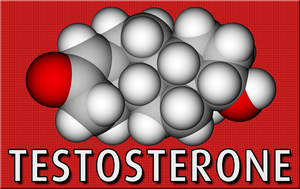Introduction
Andropause, often referred to as male menopause, is a condition characterized by a gradual decline in testosterone levels in aging men, leading to a variety of physical and psychological symptoms. Over the past two decades, the importance of mental health support in managing these symptoms has become increasingly recognized. This article reviews the therapeutic interventions employed over the last 20 years to support American males experiencing andropause, highlighting the role of mental health in enhancing overall well-being.
Understanding Andropause
Andropause typically begins in men around the age of 40 and can lead to symptoms such as fatigue, decreased libido, mood swings, and depression. While hormone replacement therapy (HRT) has been a traditional approach to managing the physical aspects of andropause, the psychological effects often require a more nuanced approach. Mental health support has emerged as a critical component in the comprehensive management of this condition.
The Evolution of Mental Health Interventions
Over the past two decades, the approach to mental health support for men experiencing andropause has evolved significantly. Initially, the focus was primarily on pharmacological treatments to address symptoms like depression and anxiety. However, as awareness of the broader impact of andropause on mental well-being grew, so did the range of therapeutic interventions.
Cognitive Behavioral Therapy (CBT) has become a cornerstone in the treatment of andropause-related psychological symptoms. Studies have shown that CBT can effectively reduce symptoms of depression and anxiety, improve mood, and enhance overall quality of life. Additionally, group therapy sessions have provided a supportive environment where men can share experiences and coping strategies, fostering a sense of community and reducing feelings of isolation.
Incorporating Mindfulness and Stress Reduction Techniques
Mindfulness-based stress reduction (MBSR) techniques have also gained popularity in recent years. These practices, which include meditation and yoga, have been shown to help men manage stress and improve emotional regulation. By focusing on the present moment and cultivating a non-judgmental awareness of their thoughts and feelings, men can better navigate the emotional challenges associated with andropause.
The Role of Lifestyle Modifications
Lifestyle modifications, such as regular exercise and a balanced diet, have been integral to the holistic management of andropause. Physical activity not only helps to mitigate the physical symptoms of andropause but also boosts mental health by releasing endorphins and improving mood. Nutritional counseling has also been employed to ensure that men receive adequate nutrients to support both their physical and mental well-being.
The Importance of Education and Awareness
Education and awareness campaigns have played a crucial role in encouraging American males to seek mental health support. By destigmatizing the conversation around andropause and mental health, more men have been empowered to take proactive steps in managing their symptoms. Workshops and seminars have been effective in providing men with the knowledge and tools they need to navigate this life stage successfully.
Future Directions in Andropause Management
Looking ahead, the integration of technology in mental health support offers promising avenues for further enhancing the management of andropause. Telehealth services and mobile applications can provide accessible and convenient support, particularly for men in remote or underserved areas. Additionally, ongoing research into the long-term effects of various therapeutic interventions will continue to refine and improve treatment protocols.
Conclusion
The past 20 years have seen significant advancements in the role of mental health support in managing andropause symptoms among American males. From cognitive behavioral therapy and mindfulness practices to lifestyle modifications and educational initiatives, a multifaceted approach has proven effective in enhancing the well-being of men navigating this challenging life stage. As we move forward, continued innovation and research will be essential in further improving the quality of life for men experiencing andropause.
Contact Us Today For A Free Consultation

- Understanding Andropause: Male Menopause, Symptoms, and Management Strategies [Last Updated On: March 7th, 2025] [Originally Added On: March 7th, 2025]
- Andropause in American Males: Myths, Realities, and Management Strategies [Last Updated On: March 16th, 2025] [Originally Added On: March 16th, 2025]
- Andropause in American Men: Supplements and Holistic Management Strategies [Last Updated On: March 18th, 2025] [Originally Added On: March 18th, 2025]
- Managing Andropause: Diet, Exercise, Stress, and Hormone Therapy Strategies for American Men [Last Updated On: March 18th, 2025] [Originally Added On: March 18th, 2025]
- Navigating Andropause: Understanding Emotional Changes and Support Strategies for Men [Last Updated On: March 18th, 2025] [Originally Added On: March 18th, 2025]
- Andropause and Depression: Symptoms, Interventions, and Empowerment for American Men [Last Updated On: March 18th, 2025] [Originally Added On: March 18th, 2025]
- Andropause: Embracing Male Menopause as a Growth Opportunity for American Men [Last Updated On: March 18th, 2025] [Originally Added On: March 18th, 2025]
- Andropause Management: Importance of Regular Check-ups for American Men's Health [Last Updated On: March 18th, 2025] [Originally Added On: March 18th, 2025]
- Andropause and Diabetes Risk in American Males: Symptoms, Diagnosis, and Management Strategies [Last Updated On: March 18th, 2025] [Originally Added On: March 18th, 2025]
- Andropause and Prostate Health: Understanding the Link and Managing Symptoms [Last Updated On: March 19th, 2025] [Originally Added On: March 19th, 2025]
- Managing Andropause: Boosting Energy and Vitality in American Men [Last Updated On: March 20th, 2025] [Originally Added On: March 20th, 2025]
- Andropause and Cognitive Health: Strategies for American Men to Maintain Mental Sharpness [Last Updated On: March 20th, 2025] [Originally Added On: March 20th, 2025]
- Andropause: Managing Emotional Well-being in American Men Through Diet, Exercise, and Support [Last Updated On: March 21st, 2025] [Originally Added On: March 21st, 2025]
- Andropause: Navigating Social Impacts and Coping Strategies for American Men [Last Updated On: March 21st, 2025] [Originally Added On: March 21st, 2025]
- Andropause: Building Support Networks for American Men's Health and Well-being [Last Updated On: March 21st, 2025] [Originally Added On: March 21st, 2025]
- Andropause Effects on Skin: Understanding and Managing Changes in Men [Last Updated On: March 21st, 2025] [Originally Added On: March 21st, 2025]
- Andropause and Hair Loss: Understanding Causes and Exploring Treatment Options [Last Updated On: March 21st, 2025] [Originally Added On: March 21st, 2025]
- Andropause: Mental Health Professionals' Role in Managing Psychological Impact [Last Updated On: March 23rd, 2025] [Originally Added On: March 23rd, 2025]
- Managing Andropause: A Guide for American Males to Discuss with Healthcare Providers [Last Updated On: March 23rd, 2025] [Originally Added On: March 23rd, 2025]
- Andropause and Digestive Health: Strategies for American Males [Last Updated On: March 23rd, 2025] [Originally Added On: March 23rd, 2025]
- Hydration's Crucial Role in Managing Andropause Symptoms and Enhancing Well-being [Last Updated On: March 23rd, 2025] [Originally Added On: March 23rd, 2025]
- Andropause in American Males: Managing Muscle Loss and Health [Last Updated On: March 24th, 2025] [Originally Added On: March 24th, 2025]
- Andropause: Understanding Male Menopause and Its Impact on Energy Levels in American Men [Last Updated On: March 24th, 2025] [Originally Added On: March 24th, 2025]
- Andropause: Understanding and Managing Male Menopause Effects on American Men's Lives [Last Updated On: March 24th, 2025] [Originally Added On: March 24th, 2025]
- Andropause in American Men: Enhancing Sleep Quality for Symptom Management [Last Updated On: March 25th, 2025] [Originally Added On: March 25th, 2025]
- Andropause Impact on Kidney Health: Symptoms, Management, and Monitoring for American Men [Last Updated On: March 25th, 2025] [Originally Added On: March 25th, 2025]
- Andropause and Joint Health: Strategies for American Men to Maintain Vitality [Last Updated On: March 25th, 2025] [Originally Added On: March 25th, 2025]
- Andropause and Memory: Strategies for Enhancing Recall in American Males [Last Updated On: March 25th, 2025] [Originally Added On: March 25th, 2025]
- Managing Andropause: Exercise Benefits and Strategies for American Men [Last Updated On: March 25th, 2025] [Originally Added On: March 25th, 2025]
- Managing Andropause: Stress Reduction Techniques for American Men's Health [Last Updated On: March 25th, 2025] [Originally Added On: March 25th, 2025]
- Andropause and Liver Health: Impacts and Management Strategies for American Males [Last Updated On: March 25th, 2025] [Originally Added On: March 25th, 2025]
- Andropause and Cholesterol: Management Strategies for Aging American Males [Last Updated On: March 26th, 2025] [Originally Added On: March 26th, 2025]
- Managing Andropause: Importance of Screenings and Lifestyle Changes for Men's Health [Last Updated On: March 26th, 2025] [Originally Added On: March 26th, 2025]
- Andropause and Thyroid Function: Impacts and Management in American Men [Last Updated On: March 26th, 2025] [Originally Added On: March 26th, 2025]
- Andropause and Vision: Managing Eye Health in Aging American Males [Last Updated On: March 26th, 2025] [Originally Added On: March 26th, 2025]
- Andropause: Understanding and Managing Declining Motivation in American Men [Last Updated On: March 26th, 2025] [Originally Added On: March 26th, 2025]
- Andropause Management: Benefits and Risks of Hormone Replacement Therapy for American Men [Last Updated On: March 26th, 2025] [Originally Added On: March 26th, 2025]
- Managing Andropause: Nutrition and Lifestyle Strategies for American Males [Last Updated On: March 26th, 2025] [Originally Added On: March 26th, 2025]
- Understanding Andropause: Symptoms, Causes, and Management for American Males [Last Updated On: March 26th, 2025] [Originally Added On: March 26th, 2025]
- Andropause: Understanding Male Menopause and the Importance of Community Support [Last Updated On: March 26th, 2025] [Originally Added On: March 26th, 2025]
- Andropause: Managing Symptoms and Balancing Work-Life for American Men [Last Updated On: March 27th, 2025] [Originally Added On: March 27th, 2025]
- Andropause and Self-Esteem: Impacts and Management Strategies for American Men [Last Updated On: March 27th, 2025] [Originally Added On: March 27th, 2025]
- Andropause: Managing Mental Health and Breaking Stigma in American Men [Last Updated On: March 27th, 2025] [Originally Added On: March 27th, 2025]
- Andropause and Emotional Intelligence: Navigating Challenges for American Men [Last Updated On: March 27th, 2025] [Originally Added On: March 27th, 2025]
- Andropause and Respiratory Health: Symptoms, Links, and Management Strategies for American Males [Last Updated On: March 27th, 2025] [Originally Added On: March 27th, 2025]
- Mindfulness: A Holistic Approach to Managing Andropause Symptoms in American Men [Last Updated On: March 27th, 2025] [Originally Added On: March 27th, 2025]
- Andropause: Understanding Male Menopause and Its Impact on American Men's Confidence [Last Updated On: March 27th, 2025] [Originally Added On: March 27th, 2025]
- Andropause and Immune Health: Strategies for American Males to Boost Well-being [Last Updated On: March 27th, 2025] [Originally Added On: March 27th, 2025]
- Andropause: Understanding Symptoms, Family Support, and Healthy Lifestyle Changes for American Men [Last Updated On: March 27th, 2025] [Originally Added On: March 27th, 2025]
- Andropause and Blood Pressure: Monitoring and Management Tips for American Males [Last Updated On: March 28th, 2025] [Originally Added On: March 28th, 2025]
- Andropause and Hearing Loss: Understanding the Link in American Males [Last Updated On: March 29th, 2025] [Originally Added On: March 29th, 2025]
- Andropause and Dental Health: Essential Tips for American Males [Last Updated On: March 30th, 2025] [Originally Added On: March 30th, 2025]
- Hobbies: A Vital Tool for Managing Andropause in American Men [Last Updated On: April 1st, 2025] [Originally Added On: April 1st, 2025]
- Andropause in American Men: Impact on Creativity and Mitigation Strategies [Last Updated On: April 2nd, 2025] [Originally Added On: April 2nd, 2025]
- Andropause and Allergies: Managing Symptoms and Improving Quality of Life in American Males [Last Updated On: April 2nd, 2025] [Originally Added On: April 2nd, 2025]
- Navigating Andropause: Setting Goals for Health, Career, and Relationships [Last Updated On: April 4th, 2025] [Originally Added On: April 4th, 2025]
- Andropause: Managing Time Effectively to Enhance Life Quality in Aging American Men [Last Updated On: April 5th, 2025] [Originally Added On: April 5th, 2025]
- Andropause: Navigating Male Menopause and Its Impact on American Men's Lives [Last Updated On: April 6th, 2025] [Originally Added On: April 6th, 2025]
- Andropause Impact on Foot Health: Prevention and Management for American Males [Last Updated On: April 7th, 2025] [Originally Added On: April 7th, 2025]
- Andropause and Lifelong Learning: Enhancing Life Quality for American Men [Last Updated On: April 9th, 2025] [Originally Added On: April 9th, 2025]
- Technology's Role in Managing Andropause for American Men: Wearables to Digital Therapeutics [Last Updated On: April 9th, 2025] [Originally Added On: April 9th, 2025]
- Andropause Effects on Hand Health: Symptoms, Management for American Males [Last Updated On: April 9th, 2025] [Originally Added On: April 9th, 2025]
- Volunteering: A Holistic Approach to Managing Andropause in American Men [Last Updated On: April 9th, 2025] [Originally Added On: April 9th, 2025]
- Andropause and Skin Sensitivity: Managing Symptoms in American Males [Last Updated On: April 9th, 2025] [Originally Added On: April 9th, 2025]
- Andropause: Understanding Its Impact on American Men's Adventurous Spirit [Last Updated On: April 11th, 2025] [Originally Added On: April 11th, 2025]
- Andropause and Eye Health: Impacts and Management for American Males [Last Updated On: April 12th, 2025] [Originally Added On: April 12th, 2025]
- Andropause Effects on Nail Health: Nutritional and Lifestyle Strategies for American Men [Last Updated On: April 13th, 2025] [Originally Added On: April 13th, 2025]
- Travel as Therapy: Managing Andropause in American Men [Last Updated On: April 13th, 2025] [Originally Added On: April 13th, 2025]
- Andropause and Nasal Health: Understanding the Link and Managing Symptoms in American Men [Last Updated On: April 15th, 2025] [Originally Added On: April 15th, 2025]
- Andropause: Understanding Testosterone Decline and Its Impact on Men's Humor and Well-being [Last Updated On: April 15th, 2025] [Originally Added On: April 15th, 2025]
- Andropause Impact on Throat Health: Strategies for American Men [Last Updated On: April 15th, 2025] [Originally Added On: April 15th, 2025]
- Music Therapy: A Holistic Approach to Managing Andropause Symptoms in American Men [Last Updated On: April 16th, 2025] [Originally Added On: April 16th, 2025]
- Andropause: Financial Planning Strategies for American Men's Health and Retirement [Last Updated On: April 17th, 2025] [Originally Added On: April 17th, 2025]
- Andropause Effects on Oral Health: Understanding Tongue Changes and Management Strategies [Last Updated On: April 17th, 2025] [Originally Added On: April 17th, 2025]
- Art Therapy: A Holistic Approach to Managing Andropause in American Men [Last Updated On: April 17th, 2025] [Originally Added On: April 17th, 2025]
- Andropause: Navigating Testosterone Decline and Identity in American Men [Last Updated On: April 18th, 2025] [Originally Added On: April 18th, 2025]
- Andropause in American Men: Navigating Social Isolation and Building Connections [Last Updated On: April 18th, 2025] [Originally Added On: April 18th, 2025]
- Andropause Effects on Ear Health: Strategies for American Males [Last Updated On: April 19th, 2025] [Originally Added On: April 19th, 2025]
- Andropause and Cognitive Decline: Insights from a 20-Year Study on American Men [Last Updated On: April 23rd, 2025] [Originally Added On: April 23rd, 2025]
- 20-Year Study Reveals Andropause's Impact on Employment, Income, and Quality of Life in American Males [Last Updated On: April 23rd, 2025] [Originally Added On: April 23rd, 2025]
Word Count: 602




















